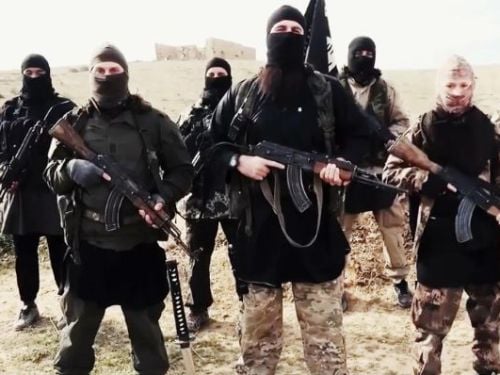 The surge of ISIS in Bangladesh has been no less insidious than its mortal fundamentalism in Syria and Iraq. The major point of distinction must be that whereas it is intrinsically a Sunni-Shia conflict further afield, the killings in India’s eastern flank have been in the nature of targeted strikes on the religious minorities. The segment, as often as not persecuted by the political class, now represents the victims of Sunni militancy. Tuesday’s killing of a Hindu priest, for which the Caliphate has claimed responsibility, lengthens the loop of the mayhem in Bangladesh over the past year.
The surge of ISIS in Bangladesh has been no less insidious than its mortal fundamentalism in Syria and Iraq. The major point of distinction must be that whereas it is intrinsically a Sunni-Shia conflict further afield, the killings in India’s eastern flank have been in the nature of targeted strikes on the religious minorities. The segment, as often as not persecuted by the political class, now represents the victims of Sunni militancy. Tuesday’s killing of a Hindu priest, for which the Caliphate has claimed responsibility, lengthens the loop of the mayhem in Bangladesh over the past year.
From secular bloggers, atheists, and foreigners, the killings have been extended to Hindus, Christians and Buddhists over the past few days. Markedly, intra-Islam strife is of lesser moment in the overall construct; ISIS has extended the canvas of the victims and there is no war within a certain religion, as in the Arab world. And yet galling has been the woefully inadequate response of the Awami League government; the impression has been conveyed that the dispensation in Dhaka is pretty much helpless against such depredations, irrespective of whether they happen in the country’s capital or in the outlying districts. Suffice it to register that ISIS has extended its tentacles and palpable is the dominant fear of the populace generally. Not that there is a political vacuum in Bangladesh; but the government boasts a popular mandate only theoretically as it was a walkover for the Awami League in the face of a BNP boycott of the parliamentary elections.
ISIS tends to thrive in regions where political control is impotent. Aside from the arrest of a handful of suspects, there has been no serious attempt to get to the root of the issue, let alone a crackdown. The challenge has assumed chilling proportions if the method of the assault is any indication. Direly imperative is a concerted political response which seems improbable given the Bangladesh Nationalist Party’s tacit support to the Islamists.
It is hard not to wonder whether the surge of ISIS in Bangladesh is embedded in a deeply fractious polity. The reported crackdown on the Jamaatul Mujahideen Bangladesh has done but little to contain the almost calculated malevolence. The supposedly secular government of Begum Hasina’s Awami League has been seemingly impervious to the emergence of two radical Islamist entities, one said to be influenced by ISIS and other affiliated to Al Qaida.
Many of the footsoldiers are said to have been deployed in Syria in what appears to be a trans-continental operation. The inbuilt threat to the stability of Bangladesh is more insidious than the government in Dhaka is prepared to accept. It is more than a mere law and order issue, which is what the administration’s response to the killings would suggest. There is a canker at the core; the machete is but a symptom of the overwhelming malaise.
Source : The Statesman




